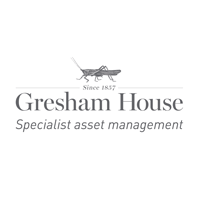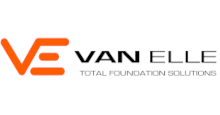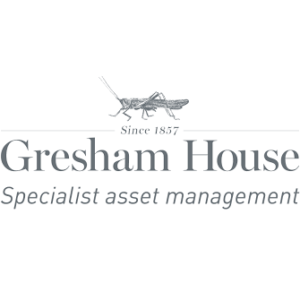Gresham House Strategic plc (LON:GHS) Fund Manager Richard Staveley caught up with DirectorsTalk for an exclusive interview to discuss annual results, how the style of investment has been affected by the current economic climate, positioning in the current environment, new investments and supporting their investee management teams.
Q1: Now, Richard, Gresham House Strategic released its annual results last week, and it appears to have performed well relative to the market. Could you go into a little bit more detail about the fund performance and returns versus the sector?
A1: Well, I think I should start by saying it’s been an incredible period for all fund managers to navigate the year to March 2020, it’s almost beggars belief how much has changed during that 12 month period. At the start of the period, MPs had just voted down the withdrawal bill for the third time, and Theresa May was the Prime Minister, and within the period we’ve left the EU, at the end of January.
If you take the political situation, we had prospects of a hard left government with a radical manifesto and leader and ended up with one of the largest Conservative majorities since the 1980s, and Boris Johnson as Prime Minister. Indeed, employment was at the highest level since the war but we’re exiting the period with the prospects of possibly the highest unemployment levels in a number of generations, linked clearly to COVID.
COVID is going to be one of the most significant events affecting the entire population in recent history. Interestingly, I’ve got the latest data from the 1st of July, in England, very sadly, 28,758 people have died from COVID, comparing to a population of 56 million, according to ONS. The economic effects are greater, it’s laying waste to entire industries, such as travel and leisure, it’s had a huge impact on retail and the property sectors. This lack of cashflow has pushed many businesses over the edge, and we’ve had huge government intervention and proposed support.
So, during that phase, we actually managed to outperform the market, in the pre-COVID phase, mainly due to stock specific gains, in particular Augean plc and IMImobile plc. We actually fell less than the market during the crash phase due to our significant cash position, our bonds that we have, and resilience across the portfolio. Overall, the NAB was down 14.3% during the year, but that was an outperformance of the SmallCap ex Investment Trusts index by 10.5% and our TSR, our total shareholder return, for the year was down 5.2%, meaning that we’re up 16% over the last three years, and that’s beaten the FTSE SmallCap by 18.5% over the last year, and 41.4% over the last three years.
So we’re very pleased and, indeed, those results do compare well compared to the peers, both in the closed end sector, where we ended up second, that is the 26 AIC UK smaller companies funds for the three years to the end of March, and also, in the wider open-ended funds universe, which isn’t strictly comparable, but they’re all UK smaller companies funds, we would have been second out of the 50 funds there, based on TSR.
Q2: Now GHS uses the strategic public equity style of investment, which has been really important for Gresham House. How was the style and your approach to investment been affected by the current economic climate?
A2: The style itself is agnostic really to the environment we’re in. We’re very committed to making sure that both our philosophy, our investment philosophy, and also our process stay the same, and, indeed, the process has been effective with working from home. But if I take maybe the different aspects of our style and how it’s manifesting itself during this phase, I think that that will be helpful for listeners.
So, we have a very highly engaged approach where we try and drive strategic, operational and management initiatives in the investments that we make, and we’ve been continuing to do this. We participated in some refinancing’s where these types of initiatives can be agreed with management teams at the point of helping them through this period. We’ve also, because of our strong existing relationships through this type of approach, we’ve had lots of contact with the companies, as required. I think a good example would be that we’ve renegotiated a convertible loan note with Northbridge Industrial Systems, where we improved our terms, but we’ve provided them with additional financial flexibility by extending the length of the loan note.
A second aspect we have is that we target influential minority stakes, much bigger than the normal stake that many managers would take, and this environment has meant there’s just been a hugely increased opportunity set due to the refinancing requirements of small companies as a result of COVID. So, since COVID began, we’ve actually become a top five shareholder in three new companies.
In terms of DD, that’s where the climate’s been a bit more challenging. We pride ourselves on doing significant amounts of DD because we have a concentrated portfolio. We’ve been inhibited from doing physical DD, and the companies themselves have obviously been in crisis mode, however, because of the length of our DD process, we’ve actually achieved a lot of the physical DD on our pipeline actually before lockdown, and we were able to benefit from that during that period.
Our value focus, which is critical to our style of investment, is really interesting at the moment, value is really out of favour. There’s been a stampede into growth shares, almost whatever their valuation, by many investors, and this is leaving behind some serious bargains. We invested, for instance, in a company called Bonhill, where we helped refinance them. We bought a 10% stake in the company, and we valued the company at £2.5 million, which was roughly the amount of EBITDA profits that they made last year. So, seriously, interesting opportunities emerging.
I think, equally in this climate, it’s a time where people do worry about risk and historically market participants are moved to larger companies, and that has, again, created more anomalies and more misunderstandings, amplified by the fact that most companies have actually withdrawn forecasts, which typically generates more inefficient pricing and understanding of what’s going on.
But the main thing from COVID for us is that the opportunity set for us has expanded significantly.
Q3: Definitely an opportunity out there at the moment. Now, just looking at the current GHS portfolio, how are you feeling about your positioning in the current environment?
A3: We’re feeling confident, but not complacent. The economy is clearly going to snap back but the pace of that is pretty unclear and as yet undetermined. We do know that following that initial snap back from lockdown, the long-term effects of some of the inevitable scarring we’re going to have, and also this huge government and corporate debt burden that’s going to emerge as a result of COVID, is going to constrain economic activity for some time. So, we know we’re going into a difficult operational environment for companies in general.
But our confidence is built on, firstly, we’ve just actually had a firm offer, takeover offer, for one of our holdings called Be Heard and that should convert itself into cash, which would leave us with about 16% of the portfolio in cash, which is a strong and solid amount of liquidity to support the portfolio and make opportunistic investments.
The core holdings, of which we have 10, make up two thirds of the portfolio currently, and we’ve had encouraging updates from many of those in recent weeks, which is what gives us more confidence. Almost all of them are very well financed, with a number with net cash, none of them are in distress.
Our largest holding is a company called Augean, it’s actually 25% of the portfolio as a result of a significant out-performance of the market and returns. Augean is involved in the area of hazardous waste treatment, which is only modestly impacted by the current COVID crisis so our largest holding we know is in a strong position.
The portfolio overall, we have no exposure to financials, which are clearly exposed to a huge increase in impairment and at risk with lending. We don’t have any travel exposure, we have no leisure exposure, we don’t have any healthcare, but equally we don’t have any extractive industries, like oil or mining companies and we don’t have any property companies either.
So, we think the sectors where we’re not in, we’re comfortable with.
Just one final thing, valuation is really important. The average valuation of our equity positions is about five and a half times the EBITDA, and 10 of our holdings are valued on less than one times normalized sales, which is a really strong position to start from, in terms of the portfolio. I just say that in a world where you’ve got things like Tesla, who last year did $26 billion in sales but are valued at $200 billion now and we have companies like Van Elle who are the leading UK foundations and piling company. They’re on 0.3 of sales and are winning contracts on HS2 and are basically exposed to this huge infrastructure tsunami that’s coming down the way. We feel very positive about the prospects of future investment returns.
Q4: Now you’ve made a number of new investments, as you’ve said, and realisations in the period. Could you go into further detail about these investments and their investment thesis?
A4: We’ll probably not do all of them. We’ve actually made five new investments during the period, all of which we think have exciting return outlooks, low valuations, and clear catalysts for shareholder value to grow will be unlocked. I’ll maybe pick a couple of them.
But before that, the other thing we did quote, which is material for shareholders and also for prospective investors, is that we made a major exit of IMImobile. Now, for those that have followed GHS for some time, they will know that at one point this was 45% of the whole portfolio, and actually was putting off quite a lot of potential investors in GHS because of the size of that position.
We had an investment thesis with that business where we believed it was undervalued, and we worked actively with the management and Board. We engaged with them around both Board composition, and there were some changes there, the capital structure of the business, the investor relations and messaging of the company’s investment narrative, which required more clarification, and who the best advisors would be. During the period we aimed it, it re-rated from six times EBITDA to 12 times EBITDA, and now it remains a solid business, but we see better value elsewhere so we’ve actually fully exited that stock now.
In terms of acquisitions, maybe I’ll touch on a couple. The first would be ULS Technology. This is a leading, well in fact, the leading housing conveyancing platform, so for when you move house, and it’s a digital platform. We initiated the position actually pre the election because we expected 2020 to be a bit more buoyant in terms of housing transactions. The company joins up the panels of solicitors that do the conveyancing work and the providers of the mortgages, either those being estate agents or mortgage brokers or banks and allows the process to be done in a digital rather than paper-based format.
Since we’ve invested, people should note that there’s been a change in Chairman. The company has a significant base of customers already, such as Lloyds Bank is its largest customer and they’ve been developing this product called Digital Move, which appears to offer considerable speeding up the process of conveyancing, and it’s literally taking up to 20 days reduction in the speed that it takes to process a transaction. We think this could create significant growth and improve profitability for the company. It has high operational gearing because it has very little incremental costs with each additional transaction. We think it’s worth at least two times sales, it’s on quite a big discount to that and it’s also a sector where there’s quite a lot of activity in the private equity world so it should be an exciting one to be involved with over the next few years.
The other company I would highlight, I mentioned this earlier actually, would be Van Elle, this market-leading piling and foundation business. We’ve got to know the brand new management team well over the last six to nine months. It’s been a wholesale change: Finance Director, CEO, and more recently, again, a new and very experienced Chairman. We think there is material scope in this business for improved systems, better capital discipline, and actually a more professional management team, the CEO is ex Balfour Beatty.
The fleet is very well invested, and they are the leader in rail so they help with the foundations and piling work for significant projects in rail, and we’ve all seen that the HS2 project is finally, after many years, happening.
The company was over-leveraged, which we’d identified, and so we were able to, again, refinance it on a very attractive valuation, a big discount to the actual book value of the equipment, let alone applying any value to the profitability that that equipment should generate in the future. We think they’ve got scope to take market share and even consolidate and build through acquisition in time. So, we’re actually really, really excited about, once we’ve come out of this difficult phase during 2020, the business can improve its profitability very materially, and its returns on capital.
Q5: Finally, Richard, what are you doing to support your investee management teams in the current climate?
A5: Well, early on, Gresham House Strategic were pushing those with higher levels of leverage to focus on finding liquidity and solidifying the balance sheet as quickly as possible. It’s human nature, with change like COVID, for everyone to be actually a little bit dismissive and react quite slowly so we were pushing them to focus on that.
We’ve also helped a number of our companies with guidance on communications and what we believe the market will want to understand and hear from them. If appropriate, we’re positioned to provide additional capital to the companies, if needed, but, as I’ve mentioned, we think there’s likely to be little of that within the portfolio at the moment.
I would say, we have to remember, we’ve got to let the managers manage and we are the shareholders. So, we understand it’s been a period of huge operational stress in these businesses and we’ve been conscious not to over-communicate and over-pester them whilst they’ve got a lot on their plates. It remains an exciting time though for them because this will inevitably throw up lots of opportunities for these businesses that survive and, indeed, for investors like us in UK small cap at this time.




